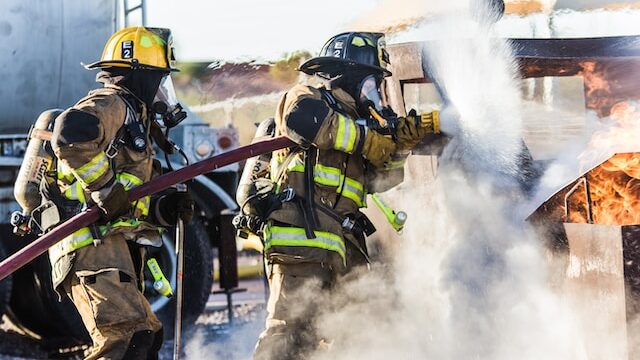Firefighting isn’t for everyone. It’s shift work, emergency medical calls, public education, and more.
Each department sets its hiring qualifications and training requirements, but all firefighters must complete an approved basic fire suppression program and an emergency medical technician certificate. The program can be through a vocational school or college.
Education Requirements
Firefighting is a challenging career that requires a lot of dedication and long hours. The profession is also hazardous and constantly puts firefighters at risk of injury, stress, and illness related to smoke inhalation and exposure to hazardous materials.
Individuals passionate about firefighting often ponder, so, how do I become a firefighter in Texas? as they navigate the specific requirements and steps necessary to pursue this honorable and crucial profession in the state.
Firefighters must be 18 and have a high school diploma or GED certificate. Applicants must also pass a background check, driving record screening, and pre-employment medical physical and drug screen.
If you are interested in a career as a firefighter, look into local and state programs that provide the necessary training. Generally, the program will include classroom study and hands-on training at a certified fire academy. You must also obtain emergency medical certification, depending on your desired career path.
Physical Requirements
A firefighter’s job involves much more than fighting fires: emergency medical calls, inspections, training, and shift work — sometimes 24 hours on and 48 off. It requires a physically sharp person who can think on their feet and be a team player. You must also be comfortable with heights, confined spaces, and hard work.
Applicants must pass a physical exam, including a drug screen, to determine whether they fit the job. The medical exam includes a stress test and an oxygen consumption measurement to see how your body can handle quick bursts of activity on the job.
Candidates must be free from any physical condition that prevents them from performing their duties as firefighters. This also includes a clear criminal record. If you have been convicted of a crime, you must be upfront with the interview panel and explain how you have changed your life to meet the department’s standards.
Experience Requirements
Firefighters in Texas work to control and put out fires while providing emergency medical services. The career requires extensive education and training, including specialized skills. They typically work long shifts, including nights and weekends. The job is physically and emotionally demanding and is frequently exposed to public scrutiny.
Aspiring firefighters should contact their local city fire departments and educational institutions to learn about specific requirements in their area of the state. Accredited fire academy programs usually require a semester-long commitment and include basic firefighting training and a comprehensive emergency medical program.
Successful candidates will complete a background check and physical examination consistent with NFPA 1582, Standard on Comprehensive Occupational Medical Program for Fire Departments. A valid class B driver’s license and a good driving record are also required. Applicants must be free of drug use, alcohol abuse, and other criminal activity. They must have a visual acuity of 20/40 or better without corrective lenses and be able to operate a fire vehicle and other equipment safely.
Training Requirements
Firefighters perform various duties to protect the public from injury, property loss, and death. As such, firefighters must undergo rigorous training to ensure they have the skills and knowledge to operate emergency equipment successfully and conduct safety inspections.
Training programs are available from several independent fire academies, colleges, universities, and municipal departments. These programs combine classroom work with hands-on, practical training. Depending on the program, future firefighters may also be required to complete basic medical and physical fitness tests and a criminal background check.
There are many opportunities to advance in a career as a firefighter, including roles like fire investigator, fire instructor, or training coordinator. However, the physical and emotional stress of the job, along with long shifts and a high risk of injury, should be taken into consideration by potential candidates. As a result, it’s essential to research various academy programs and curriculums, and speak with current firefighters, instructors, and mentors to find one that best matches your goals.
